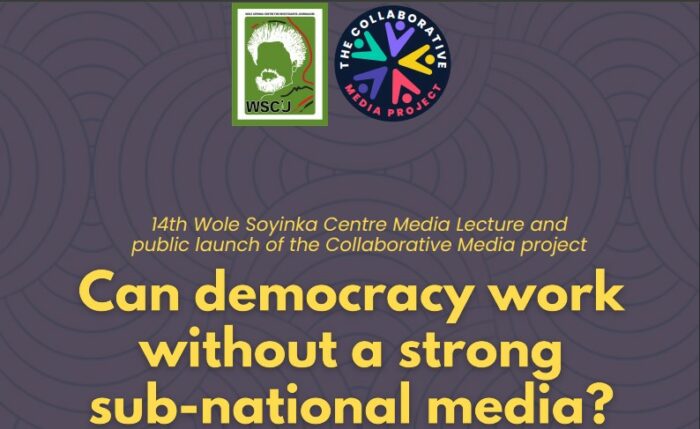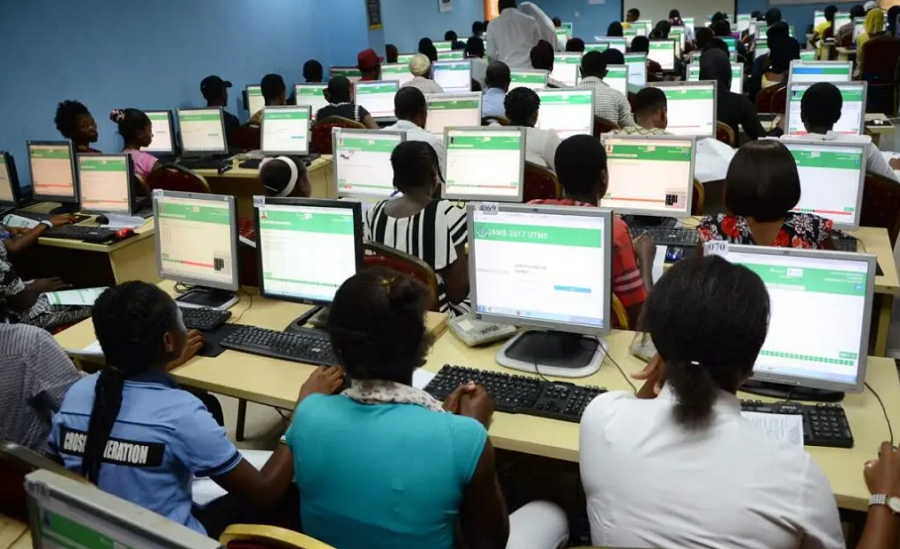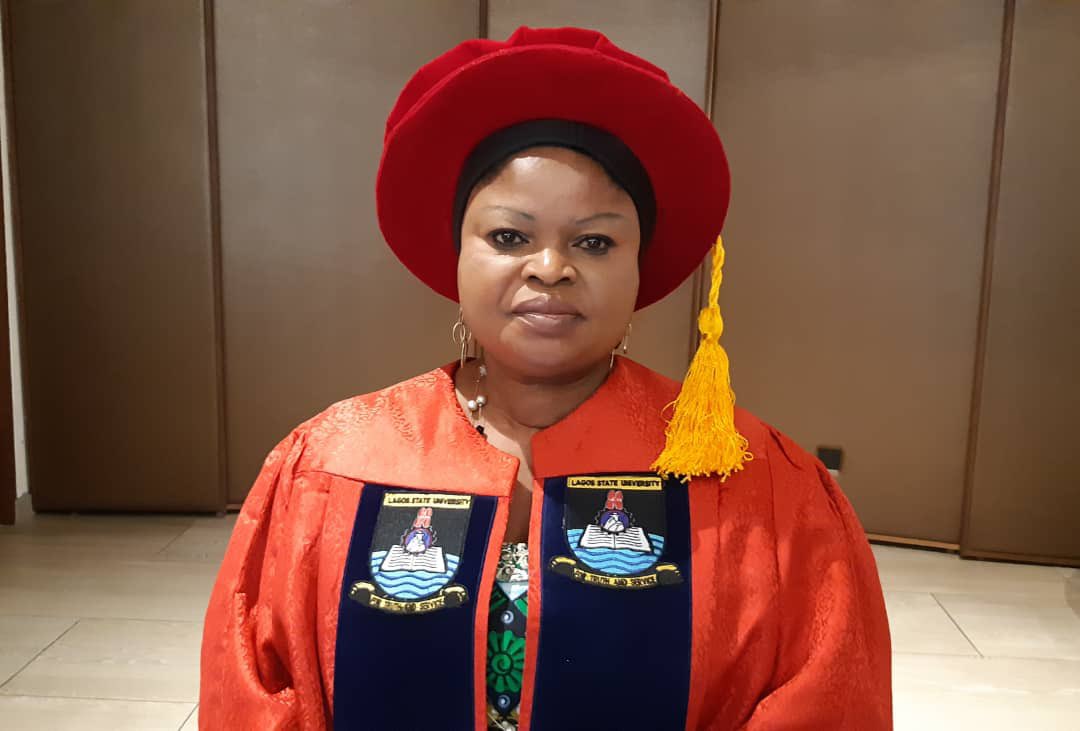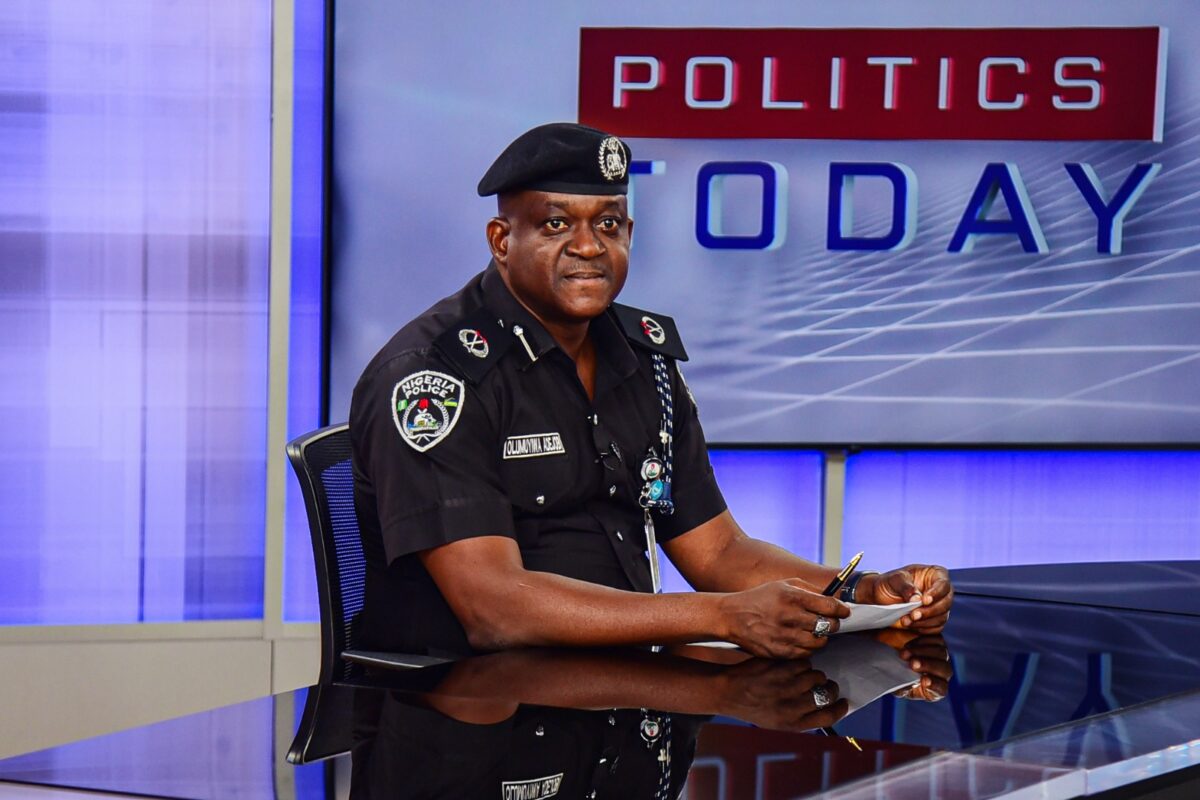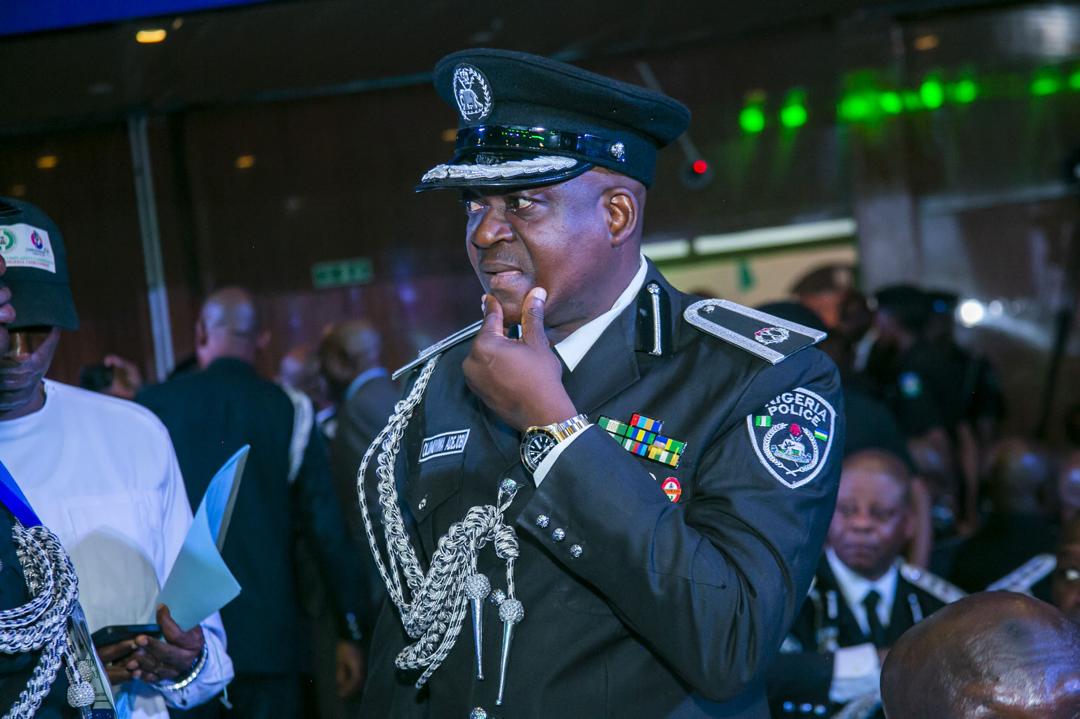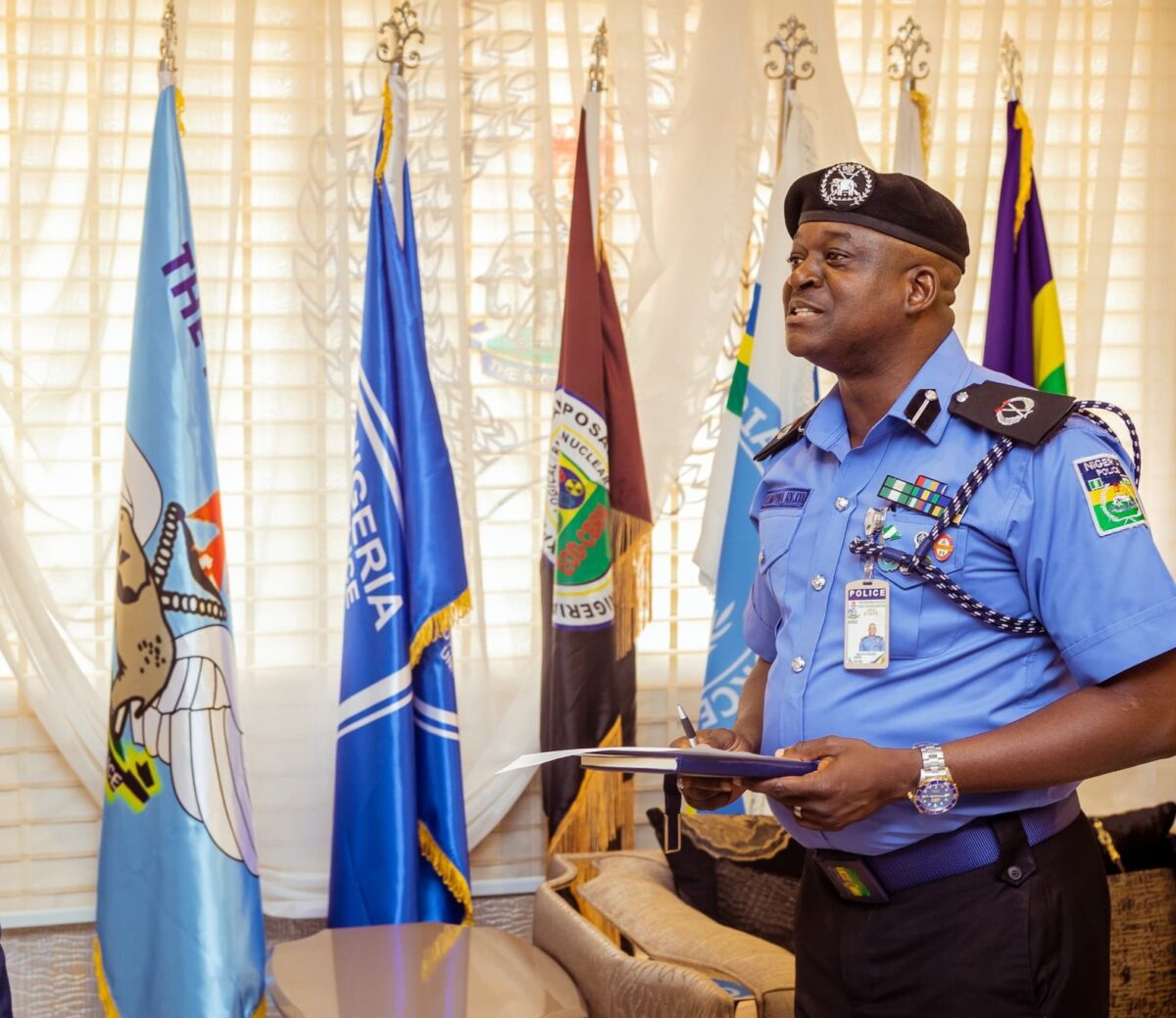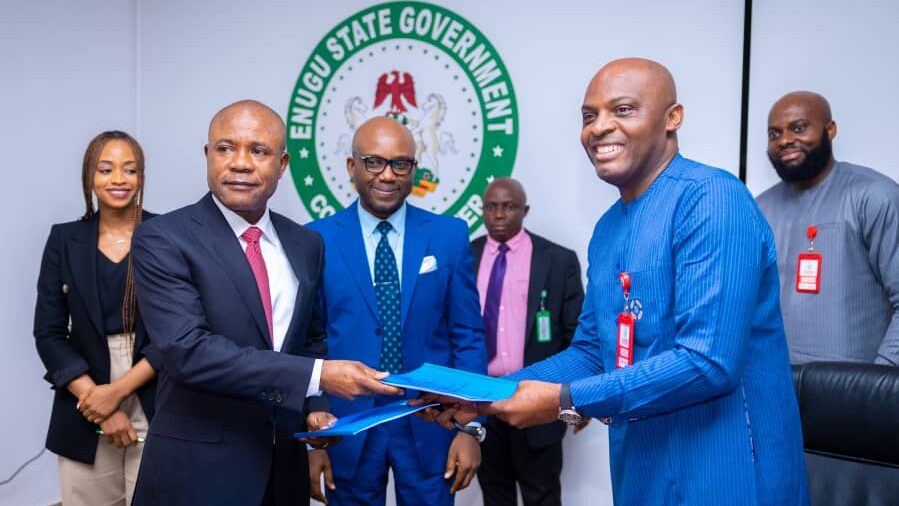The Wole Soyinka Centre For Investigative Journalism (WSCIJ) held the 2022 edition of the Wole Soyinka Annual Media Lecture on Wednesday.
Themed ‘Can Democracy Work Without a Strong Sub-National Media?’, the 14th edition of the Wole Soyinka Annual Media Lecture also served as the public launch of the Collaborative Media Engagement for Development, Inclusivity and Accountability (CMEDIA), a project of the centre.
CMEDIA is a three-year multi-level intervention for media independence and government accountability supported by the MacArthur Foundation.
READ ALSO: Soyinka: US Offered Nigeria Lie Detectors But FG Rejected Them
Motunrayo Alaka, Executive Director of WSCIJ, said that the 2022 Wole Soyinka Annual Media Lecture was aimed at exploring the prospects of a vibrant democracy with an independent media playing the watchdog role at the sub-national levels of governance.
“We hope this lecture will encourage conversations and actions where more media organisations increase their focus on sub-national governance and take advantage of their proximity to better educate citizens on civic issues to encourage active participation. It is especially urgent as we build-up to the forthcoming elections, where 30 of 36 states in Nigeria hold their gubernatorial elections and, importantly, the governance that should follow before another election fever hits,” a statement from Alaka read in part.
The keynote speakers at the lecture were Chiedo Nwankwor and Oladayo Olaide. Nwankwor, Vice Dean for Education and Academic Affairs, Johns Hopkins University School of Advanced and International Studies (SAIS), said it is possible to establish a sustainable sub-national media structure through innovative “media design thinking”.
“Can democracy work without a strong sub-national media? The answer is an emphatic no,” Nwankwor said. “If we cannot build a sustainable sub-national media, we cannot have a strong democracy providing the dividends to the people.”
Olaide, Deputy Director of the MacArthur Foundation Africa Office, represented Kole Shettima, Director, MacArthur Foundation Africa Office. He agreed that without a sub-national media practice it would be impossible to have a working democracy.
“Between 50 and 52% of government spending goes to the state level. This means that most of our development is at the sub-national level,” Olaide said.
“Democracy is facing numerous challenges (on the African continent). We have a deeply unaccountable political class. We also have issues of widespread insecurity and impunity. There are challenges facing the media. Because of the proximity of the media to the government, many of the media houses rely on state patronage. Funding is also a major challenge for our media houses.”
READ ALSO: Soyinka: Herdsmen Should Be Compensated? What Kind Of Rubbish Is That?
The panellists addressed concerns about the running of a sustainable sub-national media which would fill the gap in the independent reportage of state and local government activities.
Ibiba Don Pedro, the Managing Director and co-founder of National Point, highlighted how important a sub-national media is to the Niger Delta region.
“The sub-national media make up the sum total of the media in the country. News is always local,” Pedro said. She narrated how vital a sub-national media houses is to locals and powerless persons seeking justice against oil behemoths.
Haruna Mohammed, a co-publisher of WikkiTimes, suggested that media houses teach reporters to source for funds and rely on grants. Mohammed said this while addressing the challenge of funding in the Nigerian media.
“The media will not receive grants from fellowships and foundations such as the MacArthur Foundation funding forever. We need to empower our reporters to have the capacity to source for funds and grants for their reports,” he said.
‘Fisayo Soyombo, the Editor-in-Chief of the Foundation for Investigative Journalism and Social Justice (FIJ), noted that investigative journalists must publish thorough and foolproof stories at the sub-national levels.
READ ALSO: ICIR To Mark 10th Anniversary With Media Sustainability Conference
Responding to a question from the audience, Soyombo advised reporters against cost-intensive stories which would otherwise be compromised by third party funding.
Adaora Onyechere, Executive Director at Gender Strategy Advancement International, also agreed that a strong sub-national media outfit is necessary for democracy. Onyechere noted that women and marginalised populations also depend on a strong sub-national media.
Mansur Liman, the Director-General of Federal Radio Corporation of Nigeria (FRCN), said that the government had tried not to interfere with the media. The state-owned media boss explained that priority should be placed on training journalists and reporters to work on important sub-national reportage.
Held first on March 27, 2008, WSCIJ has since held the lecture annually on July 13 to commemorate the birthday of Wole Soyinka, Africa’s first Nobel laureate in literature and grand patron of the WSCIJ who clocked 88 on Wednesday.
Subscribe
Be the first to receive special investigative reports and features in your inbox.


